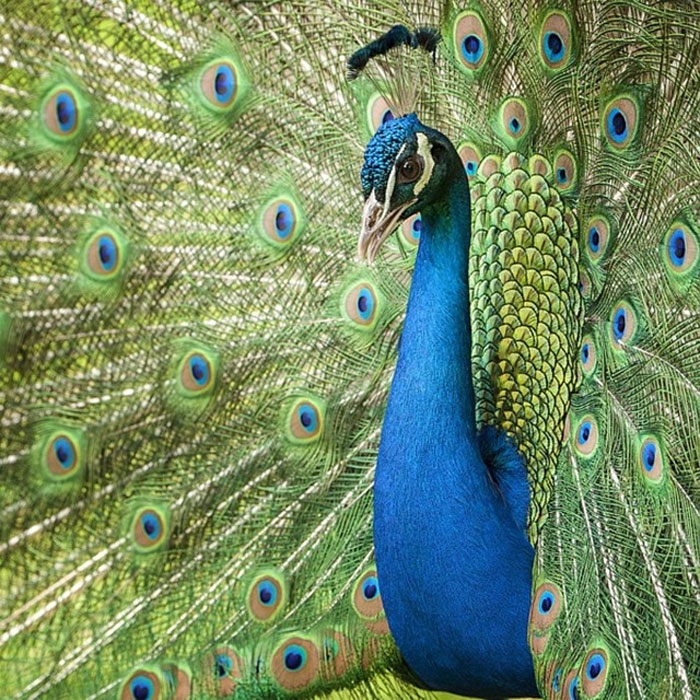One question my readers ask often is are ISAs a good investment. Here I share why stocks and shares ISAs are still one of the best investments around and how you can select the best ISA for you.
But let me tell you a story first.
The other day, a conversation over coffee turned to retirement dreams and the provisions we have made for the future.
I proudly said that I have maxed out my Stocks and Shares ISA with Nutmeg.
“Why are you doing this, Maria?” my friend asked. “I didn’t put much in my ISA last year. The markets are crashing all the time and it seems better to keep your money in a basic savings account, right?”
Wrong. Keeping your cash under the mattress would be much better than keeping it in savings accounts and cash ISAs. (Yes, this is still true.)
It is time, friends, for humbling investment lessons.
Contributing to a Stocks and Shares ISA, and maxing it out when the opportunity is there, is still very much worth it.
Here is why.
(If you feel confused about different ISAs and the benefits these bring, check out our guide to Stocks and Shares ISA).
Let’s Check Are ISAs a Good Investment (Especially Stocks and Shares ISAs)

Here is what makes stocks and shares ISAs a very good investment:
#1. Stocks and shares ISAs are a good investment because they are tax efficient. You know that profit from investments is taxed, right?
Well, if you keep your ISA contribution within the tax-free ISA limit (for 2023-2024 this is £20,000), you won’t pay any tax. ISAs are ‘tax-free’ meaning you won’t pay capital gains tax or tax when drawing down (remember though that the Government has already taken its cut because you contribute after-tax income).
#2. Stocks and shares ISAs are flexible. Imagine your investments as a delicious piece of chocolate and the ISA as the wrapper around it. You can do two things:
- Blend the chocolate and wrap it in an ISA. You can select the kind of investments that you can ‘wrap’ in an ISA. There are rules about what kinds of investments are allowed, but most stocks and shares are eligible. (You are in full charge of selecting, rebalancing, etc. your portfolio though it is in an ISA.)
- Get a Lindt Dark Chocolate (or another variety you like) which is already in shiny wrapping paper. It is what you do when you start a stocks and shares ISA with a specialised provider, and they look after your portfolio for you. You still must let them know what you like. (An example here will be the Nutmeg ISA.)
#3. Stocks and shares ISAs can get you started investing. Okay, to be more specific, the ‘off the shelf’ stocks and shares ISA could start you investing because they take away some of the responsibility for selecting stocks and, through this, some of the paralysing fear of making a mistake. These ISAs also make investing a ‘low entry’ activity since you don’t need to know much about the technicalities of investing.
#4. Stocks and shares ISAs are ‘untouchable.’ Do you find that you do this perpetual moving of money between your savings account and your current account? (For my readers in the US ‘checking’ account.) I did this one as well. Do you know why I did it? Because I could always replace the money in my savings account. Guess what? Investment and cash ISAs are not like that. You cannot put in it more than the yearly amount (tax-free), and if you take money out you lose the allowance. Consequently, I’ve never taken a single penny out of my stocks and shares ISA. As I said: ISAs are ‘untouchable’ (and this is exactly as it should be).
In brief, Stocks and shares ISAs are a good investment because they are:
-
Very tax efficient;
-
Very flexible;
-
Can get you started investing; and
-
Untouchable.
How to Select the Best Investment ISA for you
Hopefully, I’ve convinced you that ISAs are a good investment, particularly stocks and shares ISAs, let me tell you how to select the best ISAs for you.
There are four things to consider when choosing an ISA to invest.
These ISA selection considerations were not plucked out of thin air. Quite the opposite; these are the four rules that, according to Tony Robbins (in his book Unshakable) ensure your investments are sound without being overly conservative.
Rule One: When investing in an ISA consider the potential loss before lusting after the gains
Before you go and invest in stocks and shares ISA (never mind the provider) you must understand that it is extremely unlikely it will only make profits. There will be times when the value of your stocks and shares ISA (your investment) will go down; there may be times when you would rue the day you decided to start investing in an ISA.
You also need to understand that I’m not talking about the value of your investing ISA going a little bit down. Research tells us that there are dips of 10% or more at least once per year. Scary stuff, uh?
Well, not really. Despite these steep drops, in most years the stock market recovers and finishes up (there are very few exceptions, which are usually in war times).
Apart from that, roughly every three-four years, we experience the ‘bear’ market. It is when the stock market drops by 40% or more. ‘Bear’ markets are scary…in the short run. Again, research shows that the market always recovers and over-recovers; but it may take couple of years or so.
Your stocks and shares ISA account doesn’t have to behave so erratically, but this will depend on some of the things we’ll discuss later. It is important to know that dips are normal so that you can ‘sit them out’. The worst thing for you, your money, your long-term future, and your stocks and shares ISA would be pulling out of it during a dip.
Rule Two: When investing in an ISA, research the potential returns
When selecting an ISA profit awareness is important but not that easy to judge. One thing you could do – when opening an “off the shelf” stocks and shares ISA – is to look at the returns that the provider has achieved historically.
Not perfect, but still something.
Ensure you understand, at least in the main, how the ISA investing platform works. For instance, I invested in stocks and shares ISA with Blue Whale Growth Fund, not because of their historically high returns but because I believe in how they invest (invest in a set number of shares and research those to death.)
Rule Three: When investing in an ISA, be mindful of the fees
Watch the fees like a hawk!
Fees can obliterate your earned interest; when compounded, it gets serious.
When you select the best stocks and shares ISA for you, please ensure you understand all the fees and charges you incur.
Remember when I told you that one of the best things about investing in an ISA is that it is tax-free?
True. You still need to watch these fees. Some managed stocks and shares ISAs can have rather steep fees, and even digital wealth managers divide their fees into several categories.
Remember: the lower the fee, the more likely your ISA is a good investment and will bring you a healthy profit.
Rule Four: Investing in ISAs still requires diversification
Any investor, even a relative beginner, knows that diversification reduces risk (there are caveats, but we won’t get into these now).
When selecting the best ISAs, you should make sure that they are diversified across:
- Financial instruments: your ISA is a portfolio that can contain equities, bonds, real estate funds, commodities, and cash. Usually, the proportions would depend on your risk tolerance and the type of market.
- Industrial sectors. Having a stocks and shares portfolio of companies from one sector is risky.
- Location. Experience shows that the stock market rarely collapses globally at the same time. It means that if you own only UK companies (or US companies) you are exposed to severe drops in value. Owning shares in companies in different countries can lower the drop substantially.
You can calculate which is the best stocks and shares ISA for you using this formula:
Best ISA = (Relatively) low risk + high (potential) returns + low fees + high diversity
I must tell you, friends, that my Nutmeg stocks and shares ISA seem to be the best ISA for me; particularly given that it is also very low maintenance because the Nutmeg team fully manages it.

Photo credit: Dick Van Dujin
Frequently Asked Questions about Stocks and Shares ISAs
Stocks and shares ISAs are not the straightforward investing vehicle these were supposed to be.
Hence, people are confused. I didn’t know the answer to these questions before seriously researching them.
Here is a list of FAQs about stocks and shares ISAs (and the answers to these):
Q1: Should I cash in my stocks and shares ISA?

Are you kidding me?
What did I tell you about dipping in your ISA? Not a good idea, friend.
No, you should not cash your stocks and shares ISA except in a dire emergency; or as part of a planned drawdown (after all, we build money reserves, so we used them one day, right?).
Q2: Should I open a cash ISA or an investment ISA?
You should open an investment ISA; certainly.
I already told you some of the reasons, but let me recap:
Keeping your money in a cash ISA is a guaranteed loss.
Why is cash ISA a guaranteed loss, you may ask.
Because when cash ISAs pay a maximum of 1.95% interest, and the inflation is close to 6% (or higher), you lose money; no two ways about it.
You could keep your “just in case” money in a cash ISA, but why burn some of your yearly allowance on that?
This brings us back to ‘cash ISAs are pretty pointless’, and it is better to keep your “in case” money in a savings bank account.
Q3: Which are the best ISAs?
We already covered this one in the section about the ways to calculate which is the best ISA for you.
Here I’d add that the best ISAs in my book would also be ‘passive.’ And this brings me to the ISAs offered by digital wealth managers like Nutmeg and Vanguard.
Q4. What are the benefits of stocks and shares ISAs?
There are many benefits of stocks and shares ISAs; here I’d like to mention a few of these. Stocks and shares ISAs are:
- Tax-efficient;
- Long term;
- Easy to open (mostly); and
- Democratic (low entry in terms of capital and knowledge).
Q5: How much can I invest in an ISA each year?
The amount you can invest in an ISA each year tax-free changes. For 2019-2020 it is £20,000.
(Remember that ISA is an individual account. It means that your partner has an allowance of £20,000 per year as well. Any offspring over 18 would have the same annual ISA allowance.)
Q6: How many tax-free ISAs can I have?
Ah, now this is an interesting question (and the one I messed up in my ISA investing).
The short answer is that you can have as many ISAs as you wish (and can viably manage).
The long answer is about the rules of ISA, according to which:
In any given tax year (ending 5 April) you can invest in three ISAs:
- One cash ISA;
- One stocks and shares ISA; and
- One innovative finance ISA.
You can split your tax-free ISA allowance between these three ISAs during the tax year. You can’t invest in two ISAs of the same type within the same tax year.
Are ISAs a Good Investment – The Verdict
Finally, I’d like to answer your question, friend, and affirm that ISAs are a good investment and investing in ISA (especially in stocks and shares ISA) is one of the smartest money moves you could make.
I hope you now agree that ISAs are a good investment and are ready to open the best stocks and shares ISA for you – you know how to calculate it and you know the rules.

ISA was good 11-12 years ago when rates were high. Shares are risky and cash could be better employed like investing in property.
@Augusta: I would agree with you when it comes to cash ISA because this is dependent on the interest rates. Stocks and shares ISA, though, is as good as the investments you put in it plus the benefit of tax free capital gains. In other words, very good. As to investing in property, this is very high entry (need capital, maintenance and management) and currently returns 3-4%. Index funds average 10% return annually for the last sixty years or so.
I am a novice to all this and have only just recently opened a stocks and shares ISA. My question is this if I use my allowance to purchase shares, and the value of the shares increase and then I am paid dividends have a breached my ISA allowance?
@Adam: Adam, this is a good question and the answer is that ISA allowance limits apply only to the money you put in during a personal tax year. Any gains from value stock and dividends do not count towards your allowance. In fact, the one reason why a stocks and shares ISA is a good investment is that you don’t pay tax on value and dividend gains. Hope this answers your question; if not please do not hesitate to e-mail me.
I am a newbie, I would like to invest in stocks and shares isa but i haven’t got a clue where to start. Please help
What if my stocks and shares ISA goes over the 85,000 pound magic number? (I know ISAs aren’t as protected as bank accounts because of where the investments are geographically.) So do I cash in anything over 85,000 or open another ISA to transfer into?